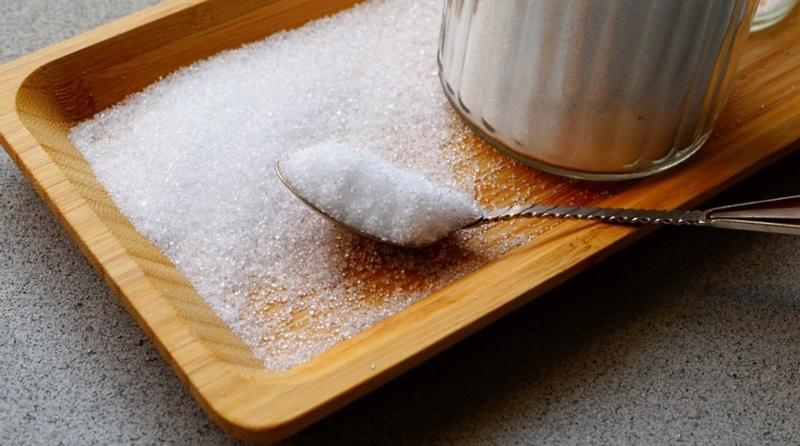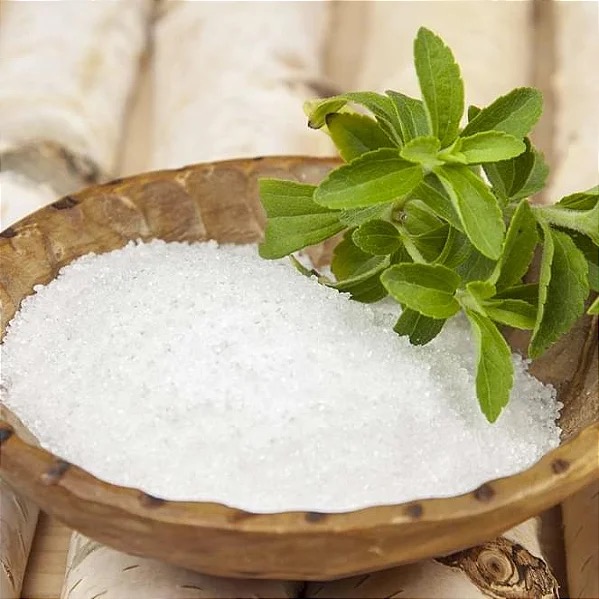







Content Menu
● Key Differences Between Xylitol and Sweet'N Low
● Functional and Health Benefits of Xylitol
● Marketing and Usage Considerations for OEM/ODM Manufacturers
● FAQ
>> 1. Is Xylitol in Sweet'N Low?
>> 2. What makes Xylitol different from Sweet'N Low's sweeteners?
>> 3. Can Xylitol replace Sweet'N Low in recipes?
>> 4. Is Xylitol safe to consume daily?
>> 5. Why do some products blend Xylitol with other sweeteners?
Is Xylitol in Sweet N Low? The answer remains no: Sweet'N Low's classic artificial sweetener products do not contain Xylitol but rather saccharin (or cyclamate in Canada). Xylitol is a natural sugar alcohol with unique properties and applications that are distinct from saccharin-based Sweet'N Low products.[11][12]

Xylitol is a naturally occurring sugar alcohol (polyol) found in various fruits, vegetables, corncobs, and hardwood trees. It has sweetness very close to sugar (about 95-100%) but with about 40% fewer calories and a very low glycemic index around 7. Xylitol is not just sweet but also offers dental benefits by inhibiting acid-producing bacteria in the mouth that cause tooth decay. It is widely used in sugar-free gums, mints, oral-care products, and health-conscious food formulations.[1][8][13][14]
Produced commercially mainly from birch wood or corn cobs, Xylitol acts as a bulk sweetener, meaning it provides volume alongside sweetness. Unlike high-intensity artificial sweeteners, it has approximately 2.4 calories per gram and does not cause a significant spike in blood sugar, making it popular in diabetic-friendly and low-glycemic products.[6][13]
Sweet'N Low is a brand of mainly artificial, high-intensity sweeteners introduced in the United States in 1958. Classic Sweet'N Low uses saccharin, which is hundreds of times sweeter than sugar and contains no calories. In Canada, Sweet'N Low uses cyclamate instead of saccharin due to local regulations. Both saccharin and cyclamate are synthetic sweeteners used in very small amounts to provide intense sweetness without bulk.[7][12][11]
Sweet'N Low is sold predominantly as a pink-packet tabletop sweetener and is known for its zero-calorie profile. Unlike Xylitol, it does not provide bulk or dental health benefits but is chosen for its off-the-scale sweetness and no-calorie nature.[12][11]

| Feature | Xylitol | Sweet’N Low (Saccharin/Cyclamate) |
|---|---|---|
| Sweetener Type | Sugar alcohol (polyol), natural origin | Artificial high-intensity sweetener |
| Sweetness Level | ~95% as sweet as sugar | 200-700 times sweeter than sugar |
| Calories per gram | ~2.4 calories | 0 calories |
| Glycemic Index (GI) | Very low (7) | Zero |
| Bulk & Texture | Provides bulk and cooling mouthfeel | No bulk, intensely sweet |
| Dental Benefits | Anti-cavity, inhibits harmful oral bacteria | None |
| Typical Applications | Chewing gum, mints, health foods, oral care | Tabletop sweetener, diet beverages |
These differences are fundamental to understanding why Xylitol is not present in Sweet'N Low products and why they serve different functions in food and beverage formulation.[4][5][1]
Xylitol's nearly sugar-like sweetness and bulk mean it can often replace sugar 1:1 in recipes, making it an excellent choice for reduced-sugar or sugar-free food products. Its low glycemic impact is beneficial for people with diabetes or those monitoring blood sugar. Moreover, Xylitol's dental benefits are scientifically recognized, as it reduces oral bacteria adherence and acid production, thus reducing the risk of dental caries, a property not shared by artificial sweeteners like saccharin.[8][14]
Unlike some artificial sweeteners, Xylitol has no bitter or chemical aftertaste and contributes a pleasant cooling sensation in the mouth, which can enhance flavor profiles in confections and oral hygiene products. However, excessive consumption of Xylitol can cause mild gastrointestinal effects such as bloating or laxative effects, which is common for polyols.[14][4]
In the global health and wellness market, Xylitol is favored for its natural origin and multi-functional profile. For overseas manufacturers looking to differentiate their products, incorporating Xylitol either as a standalone sweetener or in blends with stevia, erythritol, or monk fruit is a strategy to combine taste, health benefits, and regulatory favorable status.
OEM and ODM providers can leverage Xylitol in a variety of product formats, including:
- Blended sweetener powders or tablets that balance sweetness, mouthfeel, and caloric content.
- Functional oral care products such as tooth-friendly gums and mints.
- Health beverages and nutraceuticals aimed at diabetic or low-calorie markets.[13][15]
Proper education and labeling are crucial to avoid consumer confusion between Xylitol and artificial sweeteners like Sweet'N Low. Emphasizing Xylitol's natural origin and dental benefits can enhance product appeal.
Xylitol is not an ingredient in Sweet'N Low, which is based on the artificial sweeteners saccharin or cyclamate. Xylitol is a naturally derived sugar alcohol with properties that include sweetness similar to sugar, reduced calories, low glycemic response, and oral health benefits. Sweet'N Low provides intense sweetness without calories but lacks bulk and dental benefits. For manufacturers and formulators targeting health-conscious consumers, Xylitol offers versatile functional advantages and can be incorporated into a wide range of products including blended sweeteners and oral care solutions, making it a valuable ingredient distinct from the Sweet'N Low brand.[11][12][13]

No, Sweet'N Low's classic offerings in the U.S. use saccharin, while in Canada, cyclamate is used. Xylitol is not part of Sweet'N Low's ingredient list.[12][11]
Xylitol is a sugar alcohol providing bulk, calories, and dental benefits. Sweet'N Low uses artificial sweeteners saccharin or cyclamate, which are calorie-free and intensely sweet but have no bulk or dental benefits.[1][4]
Xylitol can replace sugar on a nearly 1:1 basis, providing bulk and sweetness, but cannot replace Sweet'N Low directly by volume because it is much less intense in sweetness.[13][14]
Yes, Xylitol is recognized as safe, though high doses may cause minor gastrointestinal discomfort. It is toxic to dogs and should be kept away from pets.[16][14]
Blending Xylitol with stevia, erythritol, or monk fruit optimizes sweetness profile, reduces cooling effects, and lowers overall calories, enhancing taste and functionality.[15][13]
[1](https://www.nirvanahealthproducts.com/faq-items/how-is-xylitol-different-from-other-sweeteners/)
[2](https://www.nationalgeographic.com/science/article/130717-sugar-substitutes-nutrasweet-splenda-stevia-baking)
[3](https://www.health.com/best-and-worst-artificial-sweeteners-7974926)
[4](https://www.theportlandclinic.com/sorbitol-xylitol-and-other-sugar-alcohols/)
[5](https://www.healthline.com/health/food-nutrition/xylitol-stevia-comparison)
[6](https://www.ynhh.org/services/nutrition/sugar-alcohol)
[7](https://www.fda.gov/food/food-additives-petitions/aspartame-and-other-sweeteners-food)
[8](https://www.aapd.org/globalassets/media/publications/archives/ly-28-2.pdf)
[9](https://www.mayoclinic.org/healthy-lifestyle/nutrition-and-healthy-eating/in-depth/artificial-sweeteners/art-20046936)
[10](https://health.clevelandclinic.org/best-and-worst-sugar-substitutes)
[11](https://en.wikipedia.org/wiki/Sweet'n_Low)
[12](https://www.sweetnlow.com/faq/)
[13](https://www.whatsugar.com/xylitol-sweetener)
[14](https://www.healthline.com/nutrition/xylitol-101)
[15](https://money.finance.sina.com.cn/corp/view/vCB_AllBulletinDetail.php?stockid=002286&id=10970144)
[16](https://www.sciencedirect.com/topics/agricultural-and-biological-sciences/xylitol)
